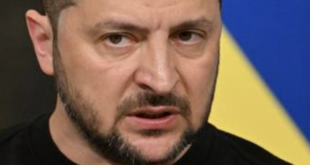Diversity Macht Frei
July 22, 2018
There has been a lot of nonsense in the media about “Russian interference” in the 2016 election, based mostly on claims that the Russians hacked the Clinton campaign and made the results available to Trump’s people or that a few “fake news” tweets and social media posts somehow played a critical role in influencing the electoral outcome.
But another story about much more direct foreign interference in the election – by providing funding to one of the candidates, Clinton – has been virtually ignored by mainstream media outlets and the anti-Trump Establishment.
In his book “The Dictator Pope”, Catholic historian Henry Sire (writing under the pseudonym “Marcantonio Colonna”*) states that Pope Francis financed Hillary’s campaign with the resources of the Catholic church, and that this may have come from funds specifically earmarked for charitable donations, known as “Peter’s Pence”. This extract from the book also makes clear Francis’ strong anti-European and anti-American motivations.
Those who are shocked to hear Francis described as a dictator would not question the fact that he is the most politically minded pope to come to the throne for many centuries. This characterization is not a libel of his enemies but is emphasised by so unqualified an admirer as Austen Ivereigh. We need to understand that the key to Francis’s reckless style—the indifference to reform, the tyrannical acts, the feverish quest for popular approval—is that his prime concern is not in fact the government of the Church. Ivereigh has traced in detail Francis’s ambition to make himself a political world leader; he set out with a bombastic vision of the “decadence” of Europe which would be exploited by Latin America to reassert itself, and his dream was to rally the continent into “la patria grande” (the great fatherland) to challenge the imperialist dominance of the United States. This objective was behind his appointment as secretary of state of Cardinal Parolin, who had been a much-praised papal nuncio to Mexico and Venezuela, and he was set to work to bind the continent together under the aegis of the Holy See. The actual results have been analysed by an Italian journalist:
“The image of Francis, who had chances to establish himself as “moral leader of the continent” . . . is rapidly going into crisis, despite the outstanding work of the Secretary of State Parolin: in Cuba . . . Vatican diplomacy is stumbling; in Colombia the peace referendum was lost ruinously because the country’s Protestants sabotaged it; in Venezuela all political sides agree that the Vatican’s peace-making effort has worsened rather than improved the situation; and finally in Brazil, after the success of the world youth day, Rio de Janeiro has a mayor who is a Protestant bishop, anti-Catholic, and above all critical of the Episcopal Conference.”
The election of Donald Trump shattered the assumptions on which Francis’s political strategy was based. With all its macho Latin American rhetoric, the plan depended on the presence in the White House of a liberal president willing to abase himself (or herself) to Latin American claims. It collapses before a president whose response to troublemakers beyond the Rio Grande is to build a wall against them. That is why in 2016 Pope Francis staked all his chips on a Clinton presidency. Those around him, beginning with Cardinal Parolin, told him that Donald Trump had no hope of winning, and on Francis’s orders the Administration of the Patrimony of the Apostolic See helped finance Hillary Clinton’s presidential campaign. (It is now being said that the money used for it came from Peter’s Pence, the donations of the faithful made supposedly for charitable purposes.)
Francis also intervened in the campaign by word, implicitly accusing Trump of not being a Christian. When Trump won, Francis was furious with his advisers. This may be one reason why Cardinal Parolin has lost favour: he proved himself fallible on predicting political outcomes in the United States, and he has failed to deliver the goods in Latin America.
Trump could use this scandal as leverage to get rid of the disastrous Pope Francis. All he has to do is privately threaten Francis with a public, Russia-style investigation into the claims unless he resigns the papacy. Trump may also have other ammunition he could use against the Argentinian Anti-Pope Bergoglio. Sire also reports that the CIA was spying on the Conclave in 2013 that led to Bergoglio’s election. It may have material that could destroy Bergoglio’s credibility and perhaps invalidate his election. There has been a persistent conspiracy theory that Bergoglio’s election was the result of a plan previously hatched by a Soros-linked ultra-liberal faction within the Catholic church known as the “St. Gallen mafia” [they actually use this name themselves]. It is against the rules of the Papal Conclave for any of the participants in it to have made any prior arrangements about who to vote for. If the CIA has proof that this rule was not observed, Bergoglio’s papacy could be invalidated.
With his absurd pro-migrant positions, the Francis papacy is an ongoing calamity for anyone who calls himself conservative. Trump should make getting rid of him a priority. It’s worth nothing there have been claims that Obama played a role in forcing the resignation of the more conservative prior incumbent, Benedict, so pressure of this kind would not be unprecedented.
*Sire at first guarded his anonymity, writing under the pseudonym Marcantonio Colonna. Marcantonio Colonna was one of the Christian commanders at the Battle of Lepanto, a sea battle which was one of Christendom’s decisive victories over Mohammedanism. Sire was a member of the Order of Malta, but his membership of the Order was suspended as soon as his authorship of The Dictator Pope was inadvertently revealed. Sire is a serious historian, not a fringe conspiracy monger. One of his other books, “Phoenix from the Ashes,” is among the most thought-provoking “Alt Histories” I’ve read, clearly based on profound scholarship.
 Daily Stormer The Most Censored Publication in History
Daily Stormer The Most Censored Publication in History



